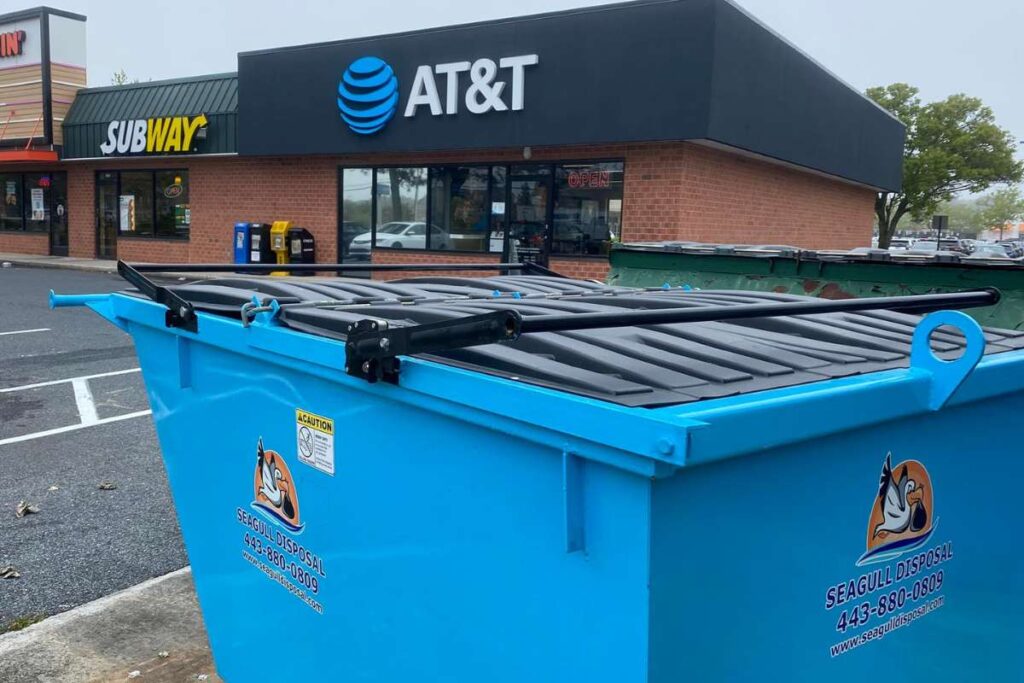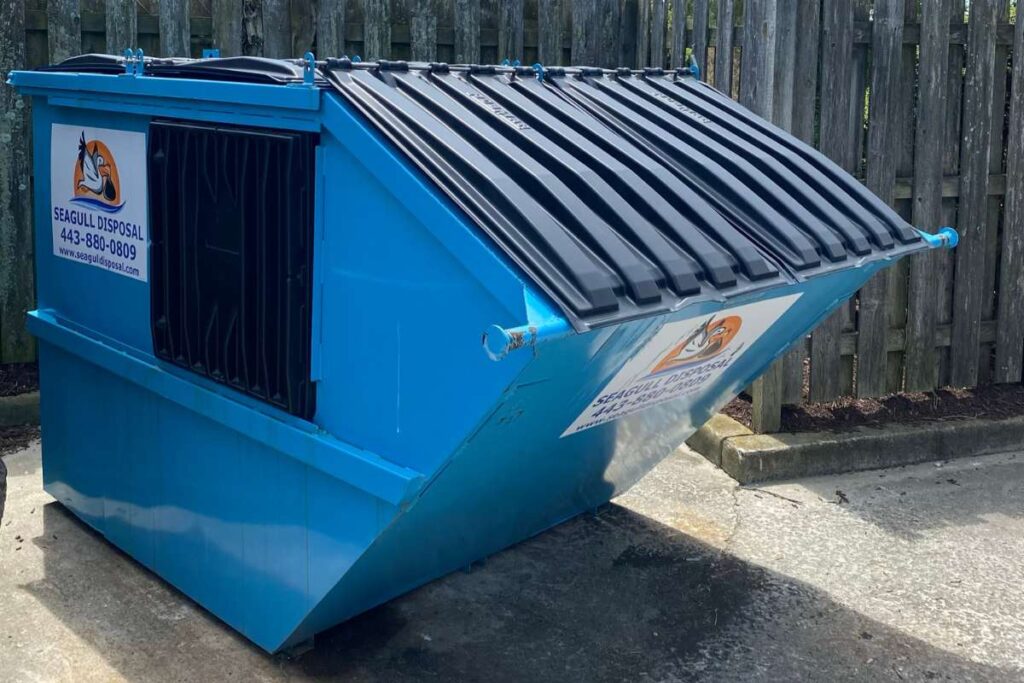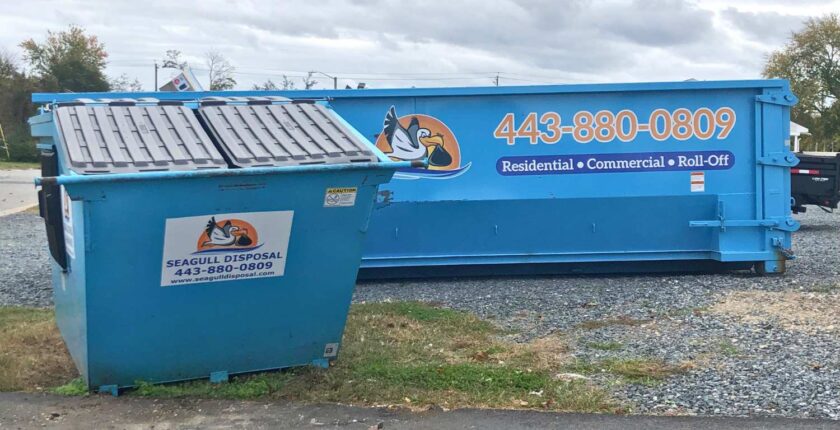Waste Audits: The Key to Efficient Disposal Management
Waste is not just an environmental concern but a critical business issue. The growing awareness of environmental sustainability highlights the need for efficient waste management to reduce the negative impact on the planet. Effective waste management is not only about reducing waste but also about managing disposal in a way that is environmentally responsible and sustainable.
Waste audits are a vital tool in achieving efficient waste management. They help businesses understand the nature and volume of waste they produce, offering insights into how they can manage waste more effectively. By conducting a waste audit, companies can identify areas for improvement and develop strategies to minimize waste, recycle more, and reduce disposal costs.
Now, we will dive into the significance of waste audits and their role in efficient waste management. We will explore how Seagull Disposal is at the forefront of offering specialized waste management and waste audit services.
What Is A Waste Audit and Who Needs It?
A waste audit is essential for any business that generates waste and is committed to reducing its environmental footprint. It involves a thorough examination of a company’s waste stream to identify what types of waste are being produced and in what quantities. The audit provides a comprehensive overview of waste management practices, clearly showing where improvements can be made.

Every business, regardless of its size, can benefit from hiring a waste audit company. Small businesses may discover simple yet effective ways to reduce their waste output, while larger corporations can uncover significant opportunities for waste reduction and cost savings. The process is not just about compliance with environmental regulations; it’s about taking proactive key steps towards sustainability.
Benefits Of A Waste Audit
Conducting waste audits has numerous benefits, starting with a significant reduction in environmental impact. By understanding and managing waste streams more effectively, businesses can decrease landfill contributions, thus reducing their ecological footprint. Waste audits help identify recyclable materials that are unnecessarily sent to landfills, offering opportunities for more effective recycling.
Another key benefit is cost reduction. Successful waste audits often reveal areas where businesses can save money, such as reducing waste collection frequency or switching to more cost-effective disposal methods.
Creating a cohesive company atmosphere is another advantage of waste audits. When employees are involved in the process, it fosters a culture of environmental responsibility and teamwork. This collective effort towards a common goal can improve morale and increase employee engagement, contributing to a more positive workplace environment. Waste audits even lead to improved operational efficiency. Businesses can operate more efficiently by streamlining waste management processes and reducing unnecessary waste.
How Is A Waste Audit Performed?
Proper planning is crucial for conducting an effective waste audit. It involves setting clear objectives, determining the scope of the audit, and preparing the necessary resources and tools.
Collect Information From Your Team
The first step is to form a waste audit team. This team should include representatives from various departments to ensure a comprehensive understanding of the company’s waste generation. Involving employees from different areas of the business ensures that all perspectives are considered, leading to a more accurate and inclusive audit.
The team should work collaboratively to develop a cohesive waste management strategy and set sustainability goals. This involves understanding each department’s specific waste generation patterns and identifying areas where waste reduction can be implemented. A unified approach ensures that all team members are on the same page and committed to the new waste management strategy.
Assess Your Waste and Gather Data
Each member of the waste audit team should assess the waste generated in their respective departments. This involves examining the types of waste produced, the volume, and the current disposal methods. Understanding these aspects is crucial for identifying areas where waste reduction and recycling can be implemented.
Data collection is a critical component of the waste audit. The team should gather information on waste generation, disposal methods, and associated costs. This data should cover various areas of the business, including offices, production facilities, and common areas. A thorough data collection provides a comprehensive view of the company’s waste management practices.
Reviewing current waste disposal methods is also essential. This helps in determining the efficiency of existing practices and identifying areas for improvement. Comparing new strategies against current methods allows for an evaluation of the effectiveness of the implemented changes.
Weigh and Measure
Quantifying the amount of waste generated is key to understanding the scale of the issue. Businesses can establish a baseline for future comparisons by weighing and measuring the waste. It allows companies to see the direct impact of their waste reduction efforts and make data-driven decisions for further improvements. This approach ensures that the waste management strategies are effective and moving in the right direction.
Analyze Findings
Analyzing the collected data is crucial in identifying patterns, trends, and areas for improvement. This analysis helps businesses understand the root causes of waste generation and pinpoint specific areas for changes. It involves evaluating how well the existing methods are working and whether they align with the company’s environmental goals. The analysis should lead to practical recommendations for enhancing waste management practices.
Create Waste Reduction Strategy and Efficiency Goals
Creating a waste management plan involves developing specific strategies for improvement. This might include enhancing recycling programs, implementing waste reduction initiatives, or changing disposal methods. The plan should be tailored to the unique needs and capabilities of the business. Teams can use online resources to research how other companies are managing their waste. This research can provide inspiration and ideas for effective waste management strategies.

Setting efficiency goals is crucial for maintaining the new waste disposal system. These goals should be realistic, measurable, and aligned with the company’s overall environmental objectives. They provide a target to aim for and a way to measure the success of waste management efforts.
Implement Changes
Putting the strategies into action is the next step. This involves making the necessary changes to waste management practices as outlined in the plan. This should include educating employees about the new waste management practices. This involves informing them about the changes, the reasons behind them, and their role in the process.
Award Milestones
Maintaining efficiency goals is vital for the success of the waste management plan. Regular monitoring and evaluation help in ensuring that the business is on track to meet its goals. Celebrating milestones and recognizing achievements can motivate the team to continue their efforts.
Companies recognizing their team’s efforts in reducing environmental impact can have a significant positive effect. It not only reinforces the importance of the waste reduction plan but also boosts morale and encourages continued participation.
How Seagull Disposal Can Help Your Business Make Waste Management Improvements
Seagull Disposal is a leader in providing comprehensive waste management solutions. Our services, including Waste Audits, compactors, and commercial dumpsters, are designed to help businesses manage their waste more efficiently. We understand businesses’ unique challenges in waste management and offer tailored solutions to meet their specific needs.

We offer free waste audit services for our business customers. This service helps businesses understand their waste generation patterns and identify areas for improvement. If your business is looking to improve its waste management practices, consider setting up a complimentary waste audit with Seagull Disposal. Contact us today to learn more about how we can assist you in achieving your waste management goals. Give us a call at (443) 880-0809.

